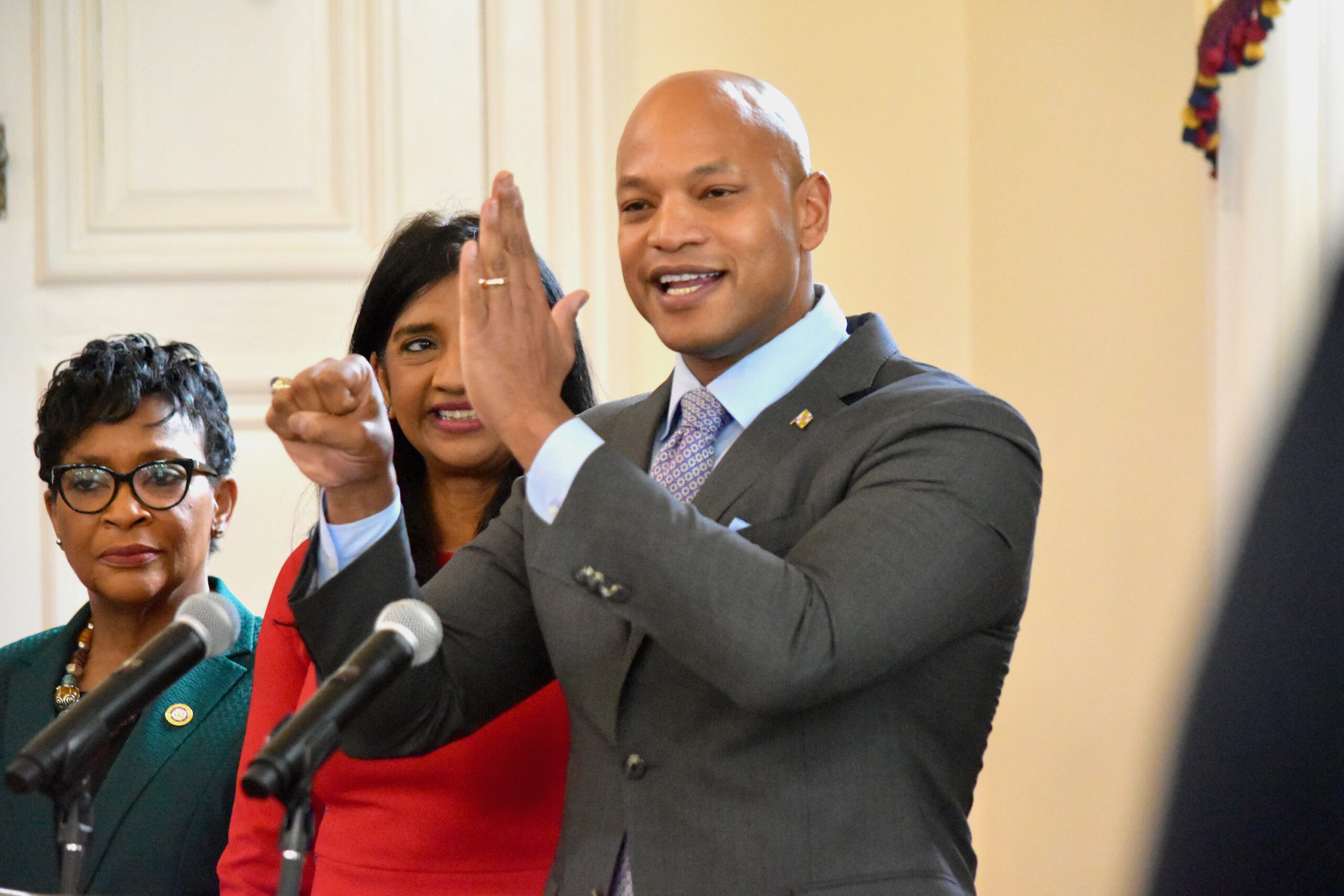Making it clear: Maryland’s governor signs bill that would help prevent fraudulent sign language interpreters

By Kate Ryan
When he testified in favor of the bill that would require American Sign Language interpreters to be licensed in Maryland, Kelby Brick, director of the Governor’s Office of the Deaf and Hard of Hearing, told lawmakers about an incident that made global headlines.
At the funeral for former South African President Nelson Mandela in 2013, a sign language interpreter hired for the event was accused of being a fake, signing nonsense throughout the ceremony seen by millions around the world.
Brick, who is deaf and testified through an interpreter, told lawmakers in Annapolis, “I want to let you know that happens on a day-to-day basis in the state of Maryland to our deaf and hard of hearing constituents.”
People who are deaf and hard of hearing, he said, frequently face interpreters who are poorly trained or appear to have passed themselves off as proficient when they clearly aren’t.
That’s why Brick joined other advocates in Annapolis to support Senate Bill 346, which will require Maryland to establish a licensing and regulatory system for sign language interpreters in the state.
On Wednesday, on National Sign Language Interpreter Day, Gov. Wes Moore (D) signed that bill into law. Moore said sign language interpreters “make sure that every single Marylander is able to engage in the work of government, that every Marylander can know what’s happening in the halls of power.”
Moore took a moment to make the ASL gesture for applause, getting a nod and a smile from the American Sign Language interpreter by his side for the ceremony. Then, Moore said he would address sign language interpreters directly, signing, “Thank you for all that you do. You make our state strong. Together we leave no one behind.”
Leslie Puzio is the program manager for the ASL Interpreter Program at Frederick Community College — one of the only two colleges in Maryland that have programs that provide training and certification of American Sign Language interpreters. She said that was just one of the actions that she appreciated at the bill signing ceremony.
The photographers at the ceremony also used sign language, Puzio said, cuing deaf and hard of hearing participants for that moment when their images would be captured by signing “Ready!” and counting down using sign language to the second the pictures were taken.
Puzio said the latest census figures show that there are 1.2 million Marylanders who are deaf or hard of hearing in at least one ear. “I’m sure that number has grown,” said Puzio, “but that’s the latest census statistic we have.”
The Americans with Disabilities Act, passed in 1990, mandated access to communications for people who are deaf and hard of hearing, and advocates such as Puzio say access to well-qualified sign language interpreters is critically important.
“This is really to ensure that deaf consumers have access to any and everything in the state of Maryland,” Puzio said.
As part of Maryland Matters’ content sharing agreement with WTOP, we feature this article from Kate Ryan. Click here for the WTOP News website. Danielle E. Gaines of Maryland Matters contributed to this report.



